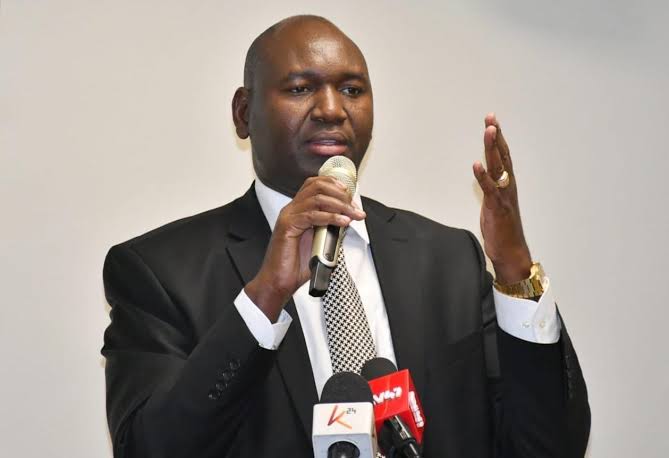With records deleted and data tampered with in the National Education Management Information System (Nemis), the government may be in the dark about the actual number of learners, raising serious questions over the credibility of school data and how funds are distributed.
This concern was brought to light through the Auditor-General's report on the 2022/23 accounts of the State Department for Basic Education, which flagged irregularities in Nemis and questioned its ownership.
The report is being reviewed by the Public Accounts Committee (PAC) of the National Assembly, which has directed that a special audit be done on the system to establish what went wrong and what needs to be fixed.
While appearing before the committee on Tuesday, Basic Education Principal Secretary Julius Bitok stated that there are currently 12.6 million learners in schools 6.4 million in primary, 2.9 million in junior secondary, and 3.3 million in senior secondary schools.
However, his statement was cast into doubt by Fredrick Mujumba, head of the Kenya Education Management Information System (Kemis), the new platform replacing Nemis.
“We have noticed that some of these learners have been deleted from various points—not necessarily at the school level. In some cases, a cybercafé operator removed learners from the system because they had not been paid for the work they did,” Mujumba said.
He also revealed that schools had shared their login details with cybercafes and other individuals, making the system vulnerable to manipulation.
“So, we noticed that our schools quite shared their credentials to the system with many others, either teachers or cyber cafes attendants and some of the cases we have handled,” he added.
The issue is critical, as the government uses this data to allocate capitation funds to schools.
The Auditor-General's report showed that capitation funds for free primary and secondary education could not be confirmed because the system had no continuous updates on disbursements.
Disclosures by the State Department for Basic Education confirmed that the current data cannot be fully relied on due to loopholes that have allowed institutions and cybercafes to interfere with records.
MPs questioned whether the Ministry of Education genuinely knows how many learners are in school, amid fears that some officials may be using the system to siphon public funds.
“The State Department does not know the number of learners in schools across the country,” said PAC member Wilberforce Ojiambo.
His colleague Nabii Nabwera added, “Manipulation of Nemis is the greatest threat to capitation management. It has become a channel for the siphoning of funds. Principals have reported that by the end of the day, a school may have 300 learners recorded in the system, only for the number to drop to 100 the next morning.”
Funyula MP Wilberforce Oundo pointed out missing documentation around Nemis, including system architecture and copyright details.
“If the system was developed internally, was it re-engineered by an external party? Because the reference was in the tender documents, that this was engineered by an external party,” he said.
Mathioya MP Edwin Mugo said an in-depth system audit must be done to answer lingering questions.
“A comprehensive system audit on Nemis needs to be done, so that we can be able to answer some of the queries we are asking. Was it handled internally? What was bought? How much was spent on the updating?” he posed.
Turkana Central MP Joseph Emathe called for a speedy conclusion of the special audit by the Office of the Auditor General.
“It is very unfortunate to hear that your officers who are handling Nemis are sometimes manipulated by institutions. Some schools have even ended up not getting their capitations because they did not do their Nemis properly,” he said.
Nabwera added that many teachers and principals would prefer the system be scrapped altogether.
“You close school with 300 students in the evening. By morning, the system shows 100,” he said.
Committee Chair Tindi Mwale stressed the importance of finalising the special audit before fully shifting to Kemis.
“The Auditor General must go back and do a proper analysis how much was spent, who did the upgrades, and whether the system logs are reliable. That’s in our report,” he said.
Despite these concerns, PS Bitok defended the data and the government’s transition to the new Kemis platform, saying it was part of the recommendations from the Presidential Working Party on Education Reforms led by Prof Raphael Munavu.
He explained that the ministry tracks learner numbers monthly through county and sub-county offices using both manual and digital methods.
PS Bitok acknowledged Nemis’s age and limitations, noting that the ministry is now shifting to Kemis, a new system designed to capture learner data across all education levels with improved security and performance.
“We are upgrading the system from what we call Nemis 3.0 to Kemis 4.0, which really has a very accurate identity, and it’s very agile and technologically advanced,” he said.
He added that the Ministry is working with CONSA, a government ICT agency, to oversee the upgrade. Clearance has already been sought from the Attorney General and Treasury to proceed under special procurement guidelines.
Mujumba, the Director of Kemis, admitted that Nemis suffered from poor infrastructure and lacked interoperability.
He said Kemis will include secure identity verification and better data protection.
“We need a solution that protects data from third-party interference. That’s why we are building Kemis with secure identity verification and outsourced data management,” Mujumba noted.

